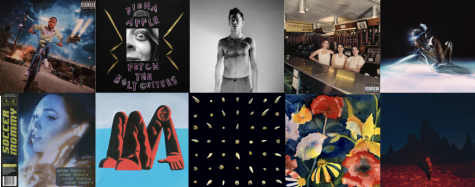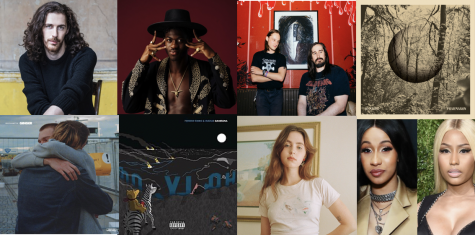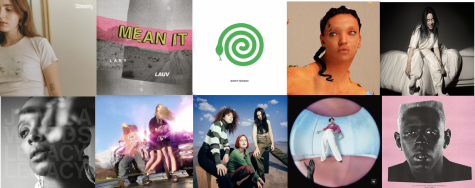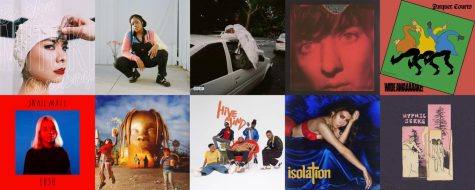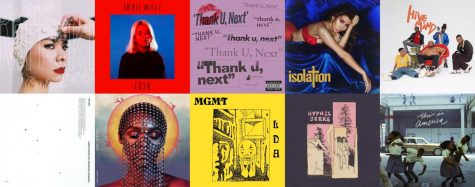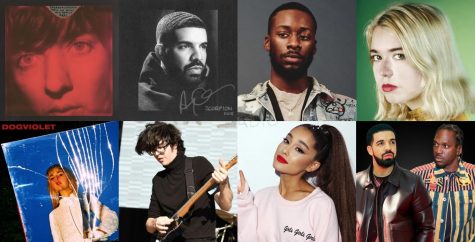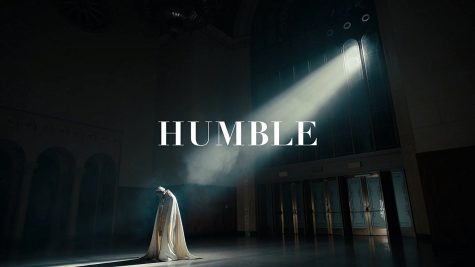WVAU Top Music of 2012: #1
December 31, 2012
#1 Song: Frank Ocean – “Thinkin Bout You”
As a member of the outrageous hip-hop collective Odd Future, Frank Ocean’s hypnotic falsetto and melancholy lyrics stood out amidst the group’s penchant for grotesque imagery and abundant profanity. His single “Thinkin Bout You” demonstrates his impressive talent and foretells a new direction for R&B, one that marries emotional honesty and sweeping romance with off-kilter arrangements and surprising lyrical choices.
Whether he’s opening with a lush orchestral introduction or inviting his lover to his beach house in Idaho, Ocean is taking this song to unexpected and transcendent places even as it remains a simple plea for affection. The directness and specificity of the lyrics, which sometimes resemble a “stream of consciousness,” reflect the apparent personal nature of this song, and Ocean delivers the searing falsetto centerpiece as well in a live setting as he does on the record. This Grammy-nominated song is a classic for all tastes.
By Mark Lieberman
#1 Album: Kendrick Lamar – Good Kid, M.A.A.D City
Good Kid, M.A.A.D. City is Kendrick Lamar’s major label follow-up to last year’s jaw-dropping Section.80, a concept album based off of his entire generation. And yet on Good Kid, the idiosyncratic rapper has done the impossible and widened his already incomprehensible scope, addressing not only his generation but his city, birthplace of gangster rap: Compton, CA.
The narrative (in a disjointed, post modern “short film” arrangement) follows Kendrick as he comes of age in the hood. He roams with his friends by day, freestyling, smoking weed, drinking, dreaming, and robbing homes, but at night he gets jumped after flirting with a dangerous girl. After this, one of his friends is killed as they attempt to retaliate. Kendrick’s tale culminates with his decision to become a rapper, spreading the truth of the dangers of the glorified Compton lifestyle.
Only somebody with Kendrick’s prodigious gifts could even think of approaching such a gigantic and complex topic and he brings everything to the plate. First and foremost, it must be said that his technical abilities as a rapper on this album establish him as a contender not for best rapper of 2012 but of all time. His flow makes itself at home in the pockets and corners of every beat he is givenÛÓ from a smooth, slow-jam delivery (“Poetic JusticeÛ) to a triplet-time mantra (“Bitch, Don’t Kill My VibeÛ) to a teeth-baring snarl dripping with aggression (“M.A.A.D. CityÛ). Not an inch of tape is spared from Kendrick’s rush of ideas. He is a master of wordplay and reference rivaling Jay-Z at his best and his combination of alliterative sounds to give his verses more attack recalls 2Pac in his prime. It seems like every line contains more than one meaning, and many times more than two.
Production-wise, the album conjures Los Angeles at night; dark but with bright highlights, surging with a hidden, threatening vitality. Whether with gorgeous guitars and vocals in standout “Bitch, Don’t Kill My Vibe” or hackle-raising synths in “M.A.A.D. City,” the beats capture the perfect atmosphere of their stories. The chorus of “Swimming Pools (Drank)” turns the ominous chord progression into a triumphant fanfare. Kendrick’s excellent producers layer their beats with lush instrumentation, accentuating their catchiness with high fidelity. Rarely does a hip hop album this long come without a single weak beat.
As for his actual content Kendrick shows himself to be a first-class storyteller. Not a single detail is spared, from the Boost Mobile phones revealing his friends’ hood origins at the mall to the “brains blown out” of a man outside of a burger joint. Stories of police chases, robberies and murder are in endless supply, and Kendrick’s constant addition of place names contextualizes these tales as an omnipresent aspect of his growth. His description of a getaway drive as it “made a right, then made a left, then made a right” in “The Art of Peer Pressure” puts listeners in the car with Kendrick’s friends, adding an off-guard punch when he elaborates: “But we’re just circling life.” His depiction of police brutality in “Good Kid” is terrifying and the candid accounts of violence in “M.A.A.D. City” and “Dying of Thirst” are rivaled only by Illmatic and Ready to Die in realism, detail and menace.
On the album’s finest moment, “Sing About Me,” Kendrick speaks to two of his characters in a tearjerking soliloquy on why he does what he does. Their siblings’ (and their own eventual) deaths have inspired him to make music that is “real” and tells real stories with lessons of caution and strength. He worries if his obsession with death will eventually claim him like it did his hero Tupac Shakur. We can only pray that it doesn’t.
The constant references to the fallen greats highlight something that makes this album even more special. Kendrick is the first rapper with this level of skill, vision, and conscience to appear from the slums of Los Angeles since Tupac’s death in 1996. Nearly fifteen years passed before a new light emerged in the violence and crime-obscured murk of Compton. In Kendrick’s words, “a flower bloomed in a dark roomÛÛÓ a visionary appeared from society’s blindest darkness to create hip hop of the finest level with a long, long-awaited message of hope and faith. It’s remarkable that this album was our #1 pick of the year. Thanks, WVAU.
By Jesse Paller






